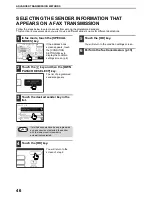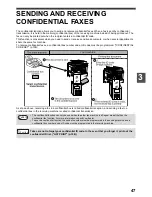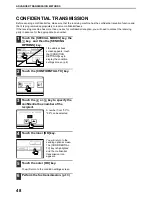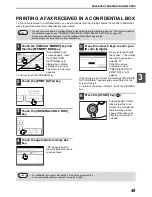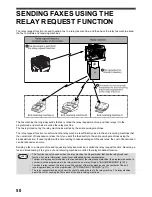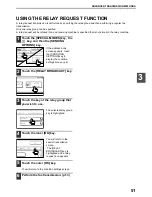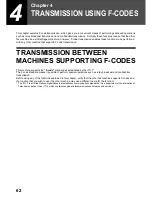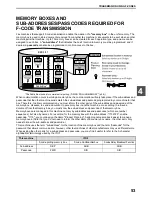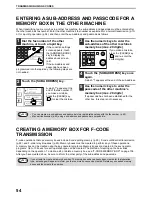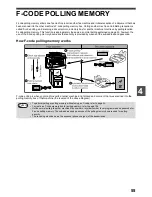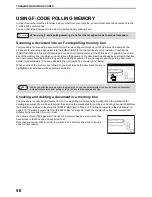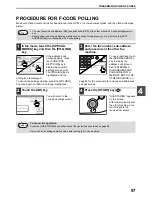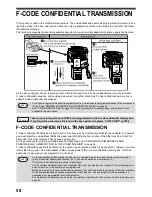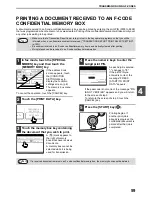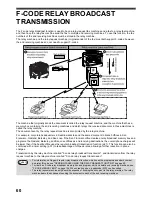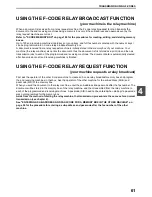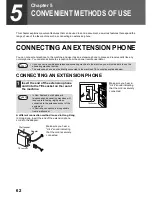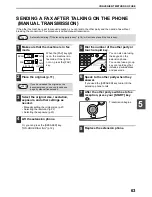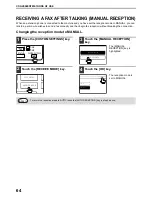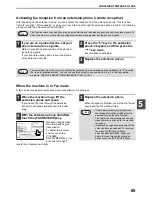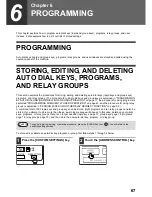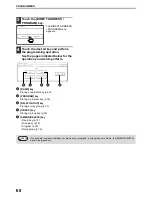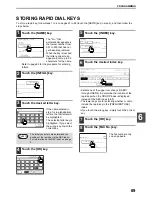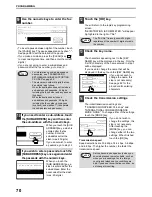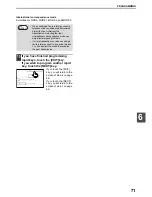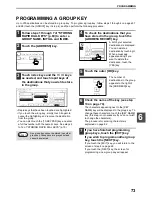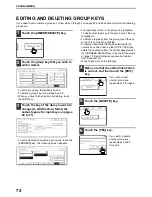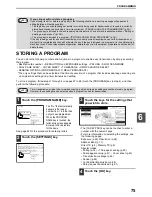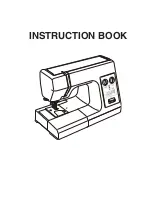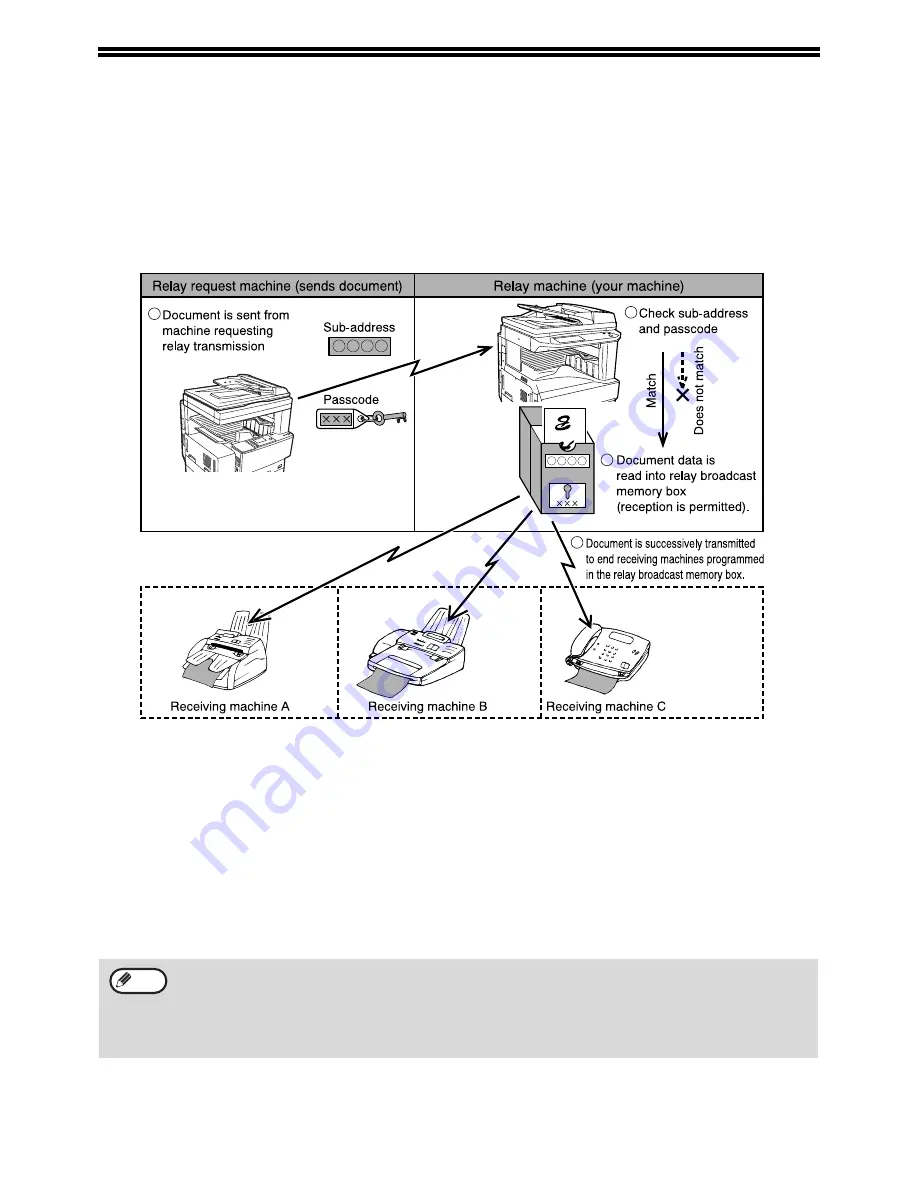
60
F-CODE RELAY BROADCAST
TRANSMISSION
The F-code relay broadcast function is used to have a relay request fax machine send a fax to a relay fax machine,
and then have the relay fax machine send the fax to mulitple end receiving machines. To use this function, the fax
numbers of the end receiving machines must be stored in the relay machine.
The relay machine and the relay request machine (original sender of the fax) must both support F-codes; however,
the end receiving machines do not need to support F-codes.
The machine that originally sends the document is called the relay request machine, and the machine that has a
memory box containing the end receiving machines and which relays the received document to those machines is
called the relay machine.
The document sent by the relay request machine is also printed by the relay machine.
For example, corporate headquarters in Seattle wants to send the same document to branch offices in San
Francisco, Oakland, Berkeley, and San Jose. If the San Francisco office creates a relay broadcast memory box and
programs the Oakland, Berkeley, and San Jose offices as end receiving destinations, the overall phone charges will
be lower than if the Seattle office uses the regular broadcast transmission function (p.27). This function can also be
combined with a timer setting (p.31) to take advantage of off-peak rates, allowing a further reduction in phone
charges.
Transmission by the relay machine is called "F-code relay broadcast transmission", and transmission from the relay
request machine to the relay machine is called "F-code relay request transmission".
• For information on Sagem's reqular relay broadcast function, which uses the programmed sender's number
and relay ID code, see "SENDING FAXES USING THE RELAY REQUEST FUNCTION" on page 50.
• To create an F-code relay broadcast memory box and program, edit, and delete end receiving machines, see
"F-CODE MEMORY BOX" on page 106. When creating a box, a passcode (SID) can be omitted.
• The relay request machine only bears the expense of sending the document to the relay machine. The relay
machine bears the expense of sending the document to each of the end receiving machines.
2
3
4
1
S.F.
Note

